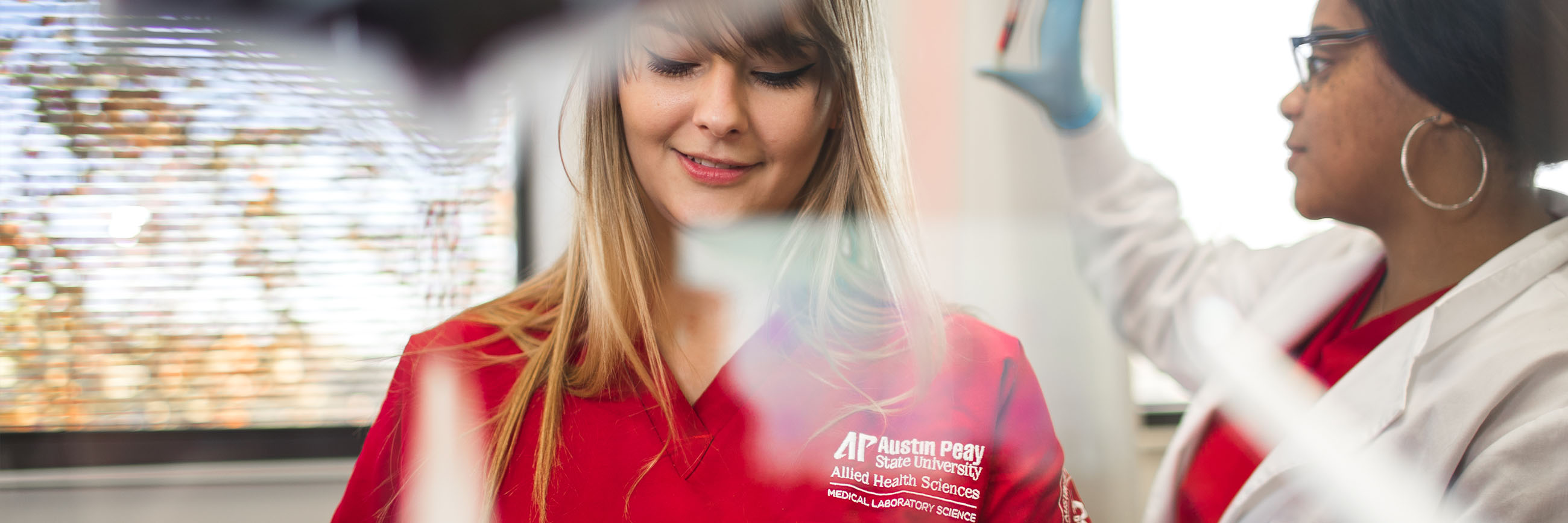Why study Medical Laboratory Science
Students will combine a love for science and laboratory work to provide medical diagnostic testing. This specially accredited program provides academic and clinical training of students in hospital settings to meet the needs of diagnostic testing for patients and industry partners in related diagnostic fields. This degree also provides a strong medical background for opportunities in a variety of healthcare professional graduate schools.
Started in 1985, this NAACLS accredited BSMLS concentration in MLS/Preprofessional has received the maximum 10 years of accreditation for its commitment to quality. Students in this concentration have a low student to faculty ratio (<1:5) which provides an effective learning environment in laboratory and lecture courses. Students in this program complete a service learning project in their field, attend professional conferences, and take a capstone board of certification review course to prepare them to be certified professionals.
The BSMLS concentration in Medical Laboratory Science curriculum prepares students for a career in diagnostic laboratory medicine as a certified medical laboratory scientist, graduate school in a variety of health professions or natural sciences, or for laboratory careers in scientific fields related to medical diagnostics such as forensics and molecular diagnostics. Graduates in medical laboratory science profession are in high demand offering excellent pay and benefits working with cutting edge diagnostic technology.
Medical Laboratory Science degrees are taught by board certified medical laboratory science professionals with expertise in areas such as clinical chemistry, diagnostic microbiology, blood banking, immunology, hematology, urinalysis, and laboratory management. Dedicated medical laboratory science program faculty are focused on student education, career placement, and long- term success as a laboratory professional.
What will I Learn
- Knowledge of normal physiology and pathological conditions of the human body related to subjects such as Clinical Chemistry, Urinalysis, Diagnostic Microbiology, Immunology, Transfusion Medicine, and Hematology.
- Laboratory skills related to the performance of laboratory specimen analysis for health assessment, monitoring, and treatment of patients.
- Develop the ability to determine the cause of disease through laboratory testing in the diagnosis and treatment of patients.
- Develop interpersonal skills and professionalism to manage a laboratory.
Program Information
Medical Laboratory Science Program Requirements
Medical Laboratory Science Sample 4 Year Plan
Professional Licensure Disclosure
Students should be aware that licensure and certification requirements vary from state to state and are subject to change. Licensing agencies or boards also may have requirements in addition to an earned degree. APSU recommends that students who are not Tennessee residents or who plan to seek licensure or certification outside the state of Tennessee contact the appropriate licensing agency or board before they enroll in an academic program designed to lead to licensure or certification and discuss their plans with an advisor.
Please visit the Professional Licensure Disclosure webpage to review specific licensure information for your state and academic program.
